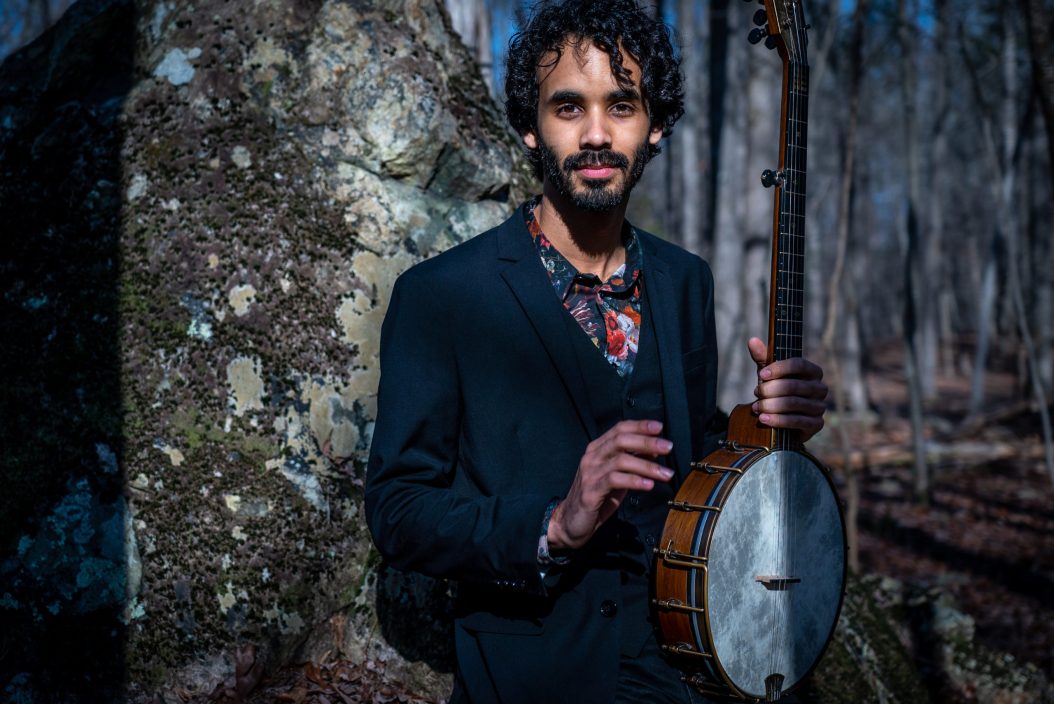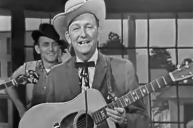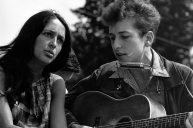One of the most persistent myths surrounding country music is that the genre is "white people music." The erasure of the Black artists who shaped country music and the industry's continual exclusion of people of color stands in contrast to genre's longstanding mantra: "three chords and the truth." And the truth is, country music would not exist without Black artists.
Videos by Wide Open Country
Telling the true story of country music means dismantling the genre's label as the "white man's blues" and addressing the power structures that have allowed the label to exist for decades. Grammy-winning artist Rhiannon Giddens, a founding member of the country, blues and old-time music band the Carolina Chocolate Drops, has been doing just that.
"The idea of what country music is has been carefully constructed to seem like it was always white," Giddens said in a recent interview with Rolling Stone. "There is no other way to put it: It was constructed by numerous people as part of the white-supremacy movement."
In the article, written by Elamin Abdelmahmoud, Giddens explains how Black musicians were forbidden from entering fiddle competitions in order to paint old-time and roots music as inherently white.
"Folk festivals were thinly-veiled attempts to recast the music as white mountain music, as part of a project to create a white ethnicity," Giddens says.
For banjo player, fiddler, activist and historian Jake Blount, the story of country and old-time music is interwoven with his own story. On his recently released album Spider Tales, Blount traces the Black and Indigenous roots of Appalachian music and showcases how old-time music spoke truth to power.
"There's a long history of expressions of pain in the African-American tradition," Blount said in a press release. "Often those things couldn't be stated outright. If you said the wrong thing to the wrong person back then you could die from it, but the anger and the desire for justice are still there. They're just hidden. The songs deal with intense emotion but couch it in a love song or in religious imagery so that it wasn't something you could be called out about. These ideas survived because people in power weren't perceiving the messages, but they're there if you know where to look."
Blount, a two-time winner of the Appalachian String Band Festival competition, says the origin of the banjo, which traveled to the United States in the hands of enslaved people from West Africa, is just the beginning.
"[The banjo] became very well established -- particularly in the Chesapeake Bay area, which is where my ancestors were held," Blount tells Wide Open Country. 'That's how I came to hearing about that history. Over time, it became a part of a larger and more diverse landscape of music that took shape in the American South in the form of spirituals, gospel, religious music, hillbilly, old-time, country -- early country -- and blues. These things all sort of fed into one another and had very few permeable boundaries between them -- if any."
In fact, it was racial segregation which led the record industry to create the category of "race" records and "hillbilly music," which would later be rebranded as country music, even though Black and white artists were essentially recording the same music.
"In the days of the early recording industry, some folks realized that if you started to segment the music based on who was playing it and who you thought it was marketable to, you could turn a little bit bigger profit or control the market a little bit more. So we invented these categories of 'hillbilly' versus 'race,' music. Traditionally, the way that that worked is the hillbilly musicians were white musicians playing for white audiences. That's who those records were marketed to," Blount says.
Though Black artists built what would become known as "hillbilly music" and influenced the white artists who were now profiting from it, they were now being excluded from the newly created genre.
"Race music was by and for Black people for the most part, but there were white musicians who were able to play on race records and that typically took the shape of blues and jazz. So early on, there's this artificial distinction that gets made between the music Black people were making and the music white people were making, even when it was kind of the same music to start with," Blount says. "Because of that money incentive to develop within these categories and maximize your appeal to those consumer bases, each one started to develop its own sound more than it maybe otherwise would have and that led to what we see as a very clear genre split today. It also led to the erasure of the Black voices that were part of the evolution of early country, of hillbilly music, of 'Old Time' music."
Dismantling the Myth
While artists such as Jimmie Rodgers and The Carter Family loom large in the pages of country music history, all too often, Black artists haven't been given the same recognition.
The Carter Family's 1928 song "Little Darling, Pal of Mine" was derived from the hymn "When the World's On Fire," arranged by a Black minister. Woody Guthrie would go on to use the melody for one of the most significant tunes in the American songbook, "This Land is Your Land." And while A.P. Carter is often credited with collecting songs across Appalachian hills and valleys, a significant portion of that work fell to his partner, musician Lesley Riddle.
In 1927, DeFord Bailey, an Afrifan-American harmonica player opened the WSM Barn Dance with his signature train song "Pan American Blues," after which announcer George D. Hay would go on to name the longest running radio show in history: "For the past hour, we have been listening to music largely from Grand Opera, but from now on, we will present The Grand Ole Opry."
Though Bailey helped grow audiences for the Opry and was so popular Roy Acuff and Bill Monroe took him on tour to help draw crowds, he was suddenly fired from the show in 1941. In the years after, he worked at a shoeshine parlor and rarely performed in public. (Bailey was finally inducted into the Country Music Hall of Fame in 2005, 23 years after his death.)
"I think a big part of remediating the historical understanding will be to talk about the historical figures who are part of the story. We can talk about Lesley Riddle, who traveled with A.P. Carter and collected a bunch of songs with him and maybe taught him some of his repertoire. We can talk about Arnold Shultz, who had such a big influence on Bill Monroe as he developed his musicianship."
Beyond acknowledging and honoring the Black artists who helped create country music, Blount says we need to make sure modern Black artists in country music are seen and heard.
"There's a huge amount of work to be done to understand the influences that not only Black people as a whole, but specific Black people, had on the evolution of the genre. And I think that's going to be something that people who are maybe more research-minded like myself, we're going to have to do...At the same time, I think there's a real need for us to engage in the modern day. It's not enough to just say 'this was once Black music.' [We need to] realize it should still be open to everybody and that maybe things need to be open to everybody to survive in the long term," Blount says. "I think it really comes down to thinking about how we can restore the history of Black people to the history of country and old-time and bluegrass and also restore Black people in the present to those spaces and make the music available to all of its rightful inheritors. Those are really closely intertwined issues for me."
Part of making sure Black artists are present in country, bluegrass and old-time music spaces today lies with ensuring music festivals are safe and welcoming to everyone.
NASCAR recently made headlines when it announced it's banning Confederate flags from all events and properties, but it's not uncommon to see the flag flying at country music festivals. (In June, the Mississippi governor signed a bill to retire the state flag, which features the Confederate emblem. The Mississippi Baptist Convention was among those calling for a change, stating that "a significant portion of the state sees it as a relic of racism and a symbol of hatred.")
"If your festival is out in the middle of nowhere in North Carolina and there are Confederate flags flying, a lot of Black people are not going to feel safe going to it," Blount says. "There's a level of thought that I think some presenters need to put into [considering] where is this event being held? What does it look like from the outside? I know, as someone who plays this music, that I could go to some of those places and probably be just fine -- even though I don't feel comfortable when there were Confederate flags flying and things like that. If I was coming at it from the outside and I didn't know who the people were in that gathering, I would perceive that as a place where I would be at physical risk."
But Blount says festivals where Black artists are represented can be a remarkably positive and empowering experience.
"There were moments that I felt really seen and empowered by festivals. I will never forget seeing Buddy Guy's set at FloydFest in 2014. That, to me, was like, 'Oh, this is my thing. This is my permission. It is here. We are here right now and he's not afraid to just be who he is in front of all people.' That was a really powerful thing for me. I think that's a broader cultural shift that needs to be made....There are going to be Black people who are willing to be the pioneers in those spaces, but the more accessible you make the space, the more of those people there will be and the faster the integration will take place."
Three Chords and the Truths
Author, professor and songwriter Alice Randall, who became the first African-American woman to co-write a No. 1 country hit when Trisha Yearwood took "XXXs and OOOs" to the top of the charts in 1994, says songwriter Harlan Howard's famous statement "country music is three chords and the truth" misses a few key elements.
"I love Harlan, but I think that definition misses something. I think that country is three chords and four very particular truths," Randall said in an interview with Huffington Post. "Life is hard, God is real, whiskey and roads and family provide worthy compensations and the past is better than the present. To me, those four truths and three chords are what define country."
It's that fourth truth -- that the past is better than the present -- that Randall says is where you find the "racial fault line in country and the difference between great country music, mediocre country music and bad country music."
"Looking back at the past is more than nostalgia," Randall said. "Superficial country songs are just looking back in some vague way at a recent past and saying it has to be better than the present, but a sense of hauntedness by the past actually creates a sense of responsibility in the present."
Blount says the music of the past, particularly the old-time music created by Black musicians, continues to resonate in the present day.
"I sort of had this gradual, gravitational pull toward more traditional stuff and finding my way to it that really came to a head when the grand jury made the choice not to indict George Zimmerman for the killing of Trayvon Martin," Blount says. "I felt the need to go back to the songs my ancestors had sung, initially in the form of spirituals, and then eventually in the form of banjo and fiddle music to sort of understand how they had seen the world because songs are the only direct record they left us. So many of them couldn't read or write and could not read or write the truth -- even if they were able to put it to paper -- for fear of persecution. I went looking for something that I needed to adapt to the world in front of me and wound up involved in this awesome jam scene and getting really into source recordings and learning old music. It just took on a life of its own."
As people around the world protest racial injustice and police brutality following the killing of George Floyd, Breonna Taylor, Ahmaud Arbery and so many others, Blount says traditional old-time and folk songs, many of which are featured on Spider Tales, provide a soundtrack to the current Black Lives Matter movement.
"I think there are a lot of spirituals that fall under that umbrella because a lot of those are kind of allegorical ways of talking about the realities of slavery and racism and injustice. The one that I have most continuously felt connected to is 'The Angels Done Bowed Down,' which is on [Spider Tales]. That is, as far as I know, the only audio recording of that song that uses the original melody and rhythm. There is an operatic adaptation, but it came out a written collection. So, as far as I know, the song had not been recorded with its original sound until I made the admittedly nontraditional adaptation on my record. That's been an important one for me."
Now Watch: The Grand Ole Opry is Back on Television
https://rumble.com/embed/u7gve.v5sy4f/




